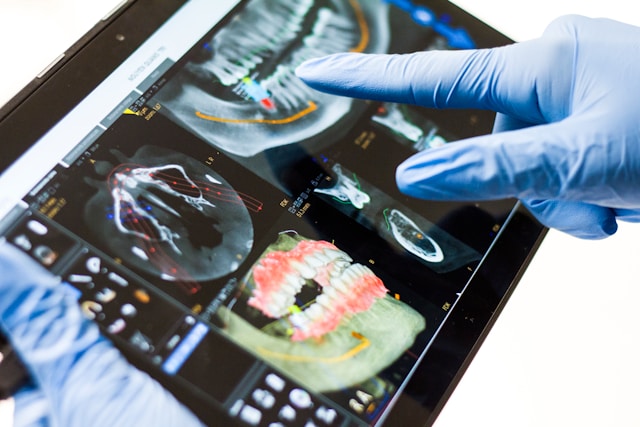Dental professionals, medical professionals, and researchers all agree that brushing your teeth does more than prevent cavities. Brushing your teeth also benefits your overall health. The act of brushing your teeth can prevent, and in some cases reverse, many severe and chronic health conditions-including all forms of dementia (including Alzheimer’s).
According to a recent study from the University of California, daily brushing is associated with a lower risk of developing dementia in the future. Between 1992 and 2010, researchers followed 5,468 retirement community residents, with an average age of 81. They found that female study participants who didn’t practice daily brushing had a 65% greater chance of developing dementia than those who did. Similar results were found for the men; those who didn’t brush daily had a 22% greater chance of developing dementia than those who brushed. Although a direct cause-and-effect relationship between brushing and dementia has not yet been established, the study did demonstrate a very strong correlational relationship between daily brushing and a lower risk for developing dementia in the future.
The link between brushing, dementia, and other serious health conditions (such as stroke, diabetes, and heart attacks) is the inflammatory process of gum disease (periodontitis). Periodontitis is caused when the bacteria in your mouth consume leftover food particles that haven’t been removed by brushing.
The act of brushing removes any leftover food, so the bacteria have nothing to consume. If you don’t brush, the bacteria consume any leftover food or sugar remaining on your teeth. After they consume, the bacteria excrete an inflammatory substance called “plaque”. Plaque is a sticky, whitish film which, if not removed by brushing, irritates and inflames your gums. Chronic inflammation destroys healthy tissue, which includes the veins and arteries that supply the blood to your brain and heart.
It’s easy to see how a diminished blood supply to your brain over several years could increase your risk for dementia. The plaque that causes the inflammation continues to build up and can break off, partially or totally blocking a blood vessel. If a blood vessel becomes blocked by plaque, the tissues dependent on that vessel for blood supply die, or become severely impaired. Daily brushing has been shown to reduce your risk for (1) heart disease. Chronic inflammation from periodontitis is a contributing factor in (2) hypertension. Inflamed and narrowed blood vessels from periodontitis also increase the risk for (3) erectile dysfunction. Plaque can break off, travel to the heart, and cause a (4) heart attack; or to the brain, causing a (5) stroke; or to the lungs, causing a (7) pulmonary embolism.
Daily brushing has also been shown to be an important factor in the management of (8) diabetes. Periodontitis impairs the body’s ability to metabolize sugar. Brushing has the ability to reverse a pre-diabetic condition, and to make existing diabetes easier to control. The bacteria involved in periodontitis can be inhaled, causing (9) pneumonia and (10) bronchitis.
Bacteria and inflammation quickly move from your gums to your jaws. When your jawbones begin to deteriorate, you will begin to lose your teeth. This process will continue on to (11) changes in facial appearance, headaches, and, eventually, (12) total edentulism (losing all of your teeth). A 2007 study found that individuals with less than 9 teeth had a higher risk of dementia than individuals with more than nine teeth
If you have artificial joints, like a knee or hip replacement, brushing can reduce your risk for (13) osteomyelitis (bone infection), (14) osteoporosis (brittle bones), or (15) sepsis (blood infection).
Brushing regularly is an easy and simple way to reduce your risks for many dangerous and chronic conditions.





